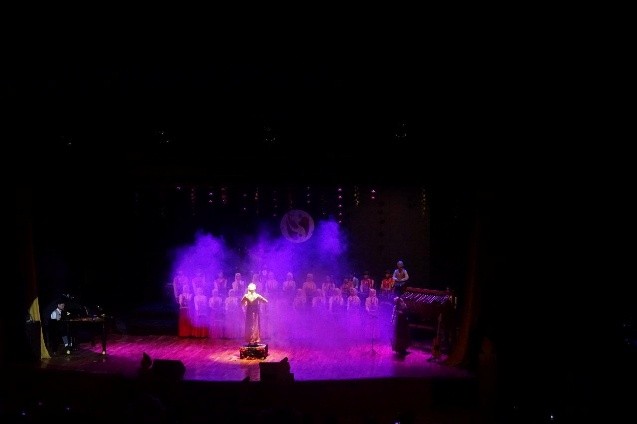Proposed Propalus Project, SBM ITB Student Team Won 1st Best National LKTI KBMK 2022
By Adi Permana
Editor Adi Permana

BANDUNG, itb.ac.id— The events entailing the National Business, Management, and Finance Student Competition (KBMK) 2022 have ended. A team sent by ITB has championed scientific paper writing as its top winner.
The Centre of National Achievements held the national competition from the 18th of August 2022 until the 9th of November 2022. The ITB team was composed of Pujangga Reogavi (Roy) and Ghanef Rayyan Hanisfy (Bobby), called the PnG. They together created a scientific paper titled “PROPALUS (Food Programme Surplus): Realizing Sustainable Food Security through Optimalizing Land Conversion Policy”.
Roy explained the concept of Propalus as a “program aimed to actualize sustainable food security through 2 policies, supported by 5 programs consisting of government policies revolving land conversion and Protected Farming Land (PFL) extensification.”
The first program applied concepts of food estate intensification and peatlands development with considerations of land conditions and choosing plant varieties that could grow without destroying the ecosystem. Secondly, employing the Urban Farming program to attract public interest — especially millennials, created incentives for companies to initiate Corporate Social Responsibility (CSR) regarding food security issues. The incentive can be in the form of certificates or even government subsidies.
“Moreover, we also suggested the Carbon Trading Program as a redemption path for pollution-emitting companies through giving well integrated LPDP scholarships for young farmers to pursue a bachelor’s degree, in the country or abroad,” stated the Entrepreneurship student of the 2020 class.

Bobby added that three entities in all five programs will influence each other and must synergize to manifest success. “There must be a collaboration between the government, the private sector, and farmers. The State is a policy executioner, private owners as investment holders, and farmers as practitioners.
Presently, licensing to convert food-producing lands into non-producing lands (housing, industry, etc.) is relatively easy as related parties merely need to arrange necessary permissions with related local governments. The Management student of the 2020 class expressed how private groups with huge funding can easily obtain farming areas for their benefit.
“Therefore, we created a procedure where private groups must provide an urgency analysis, as well as the possible consequences of buying the farmland. Permission to purchase will be given, if and only if, the approval of Statistics Indonesia and the central government have been given,” he explained.
The intricate course was meant to discourage firms from converting land exploitatively and only do so when truly needed.

The paper also outlined the concept of the doughnut economy; each basic aspect of human needs is closely related to the Earth’s ecological condition. “From the many aspects of basic needs and ecology, we underlined aspects of food from the inner circle and land conversion from the outer one,” remarked Bobby.
Propalus is a suitable alternative for governments seeking to increase their domestic food security index. They aspire this idea will amplify attention towards the issue of food security, as served on the table of G20.
Reporter: Maharani Rachmawati Purnomo (Oceanography, 2020)
Translator: Firzana Aisya (Bioengineering, 2021)

.jpg)
.jpg)
.jpg)
.jpg)
.jpg)


